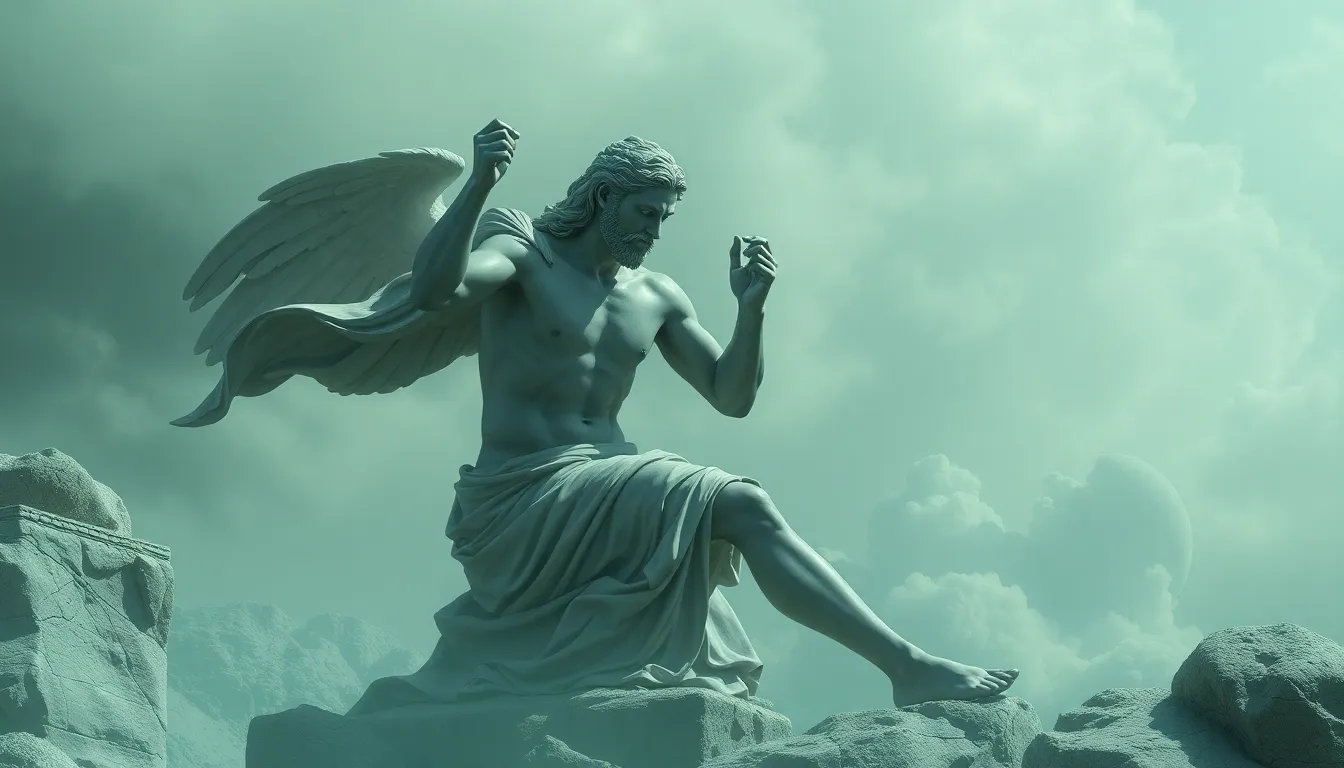The Tragic Choices of Orpheus: A Study in Love and Regret
I. Introduction
The myth of Orpheus is one of the most poignant narratives in Greek mythology, encapsulating themes of love, loss, and the consequences of choices made in moments of despair. Orpheus, a gifted musician whose melodies could enchant all living things, embarked on a heartbreaking journey to reclaim his beloved wife, Eurydice, from the clutches of the Underworld. This article delves into the tragic choices faced by Orpheus, exploring how his love for Eurydice intertwines with the regret that follows his fateful decisions.
II. The Legend of Orpheus
Orpheus, the son of Apollo and the muse Calliope, is often regarded as the greatest musician and poet of ancient Greece. His enchanting music was said to soothe wild beasts, make trees dance, and even persuade stones to rise from the ground. The tale of Orpheus is inextricably linked to his love for Eurydice, a beautiful nymph whom he married.
Tragically, their love story is cut short when Eurydice is bitten by a snake on their wedding day and dies. Her death plunges Orpheus into a deep despair, propelling him into a quest that would lead him to the depths of the Underworld.
III. The Descent into the Underworld
Orpheus, fueled by grief and desperation, decides to descend into the Underworld to retrieve Eurydice. His determination is palpable, as he fears the finality of death and the separation from his beloved. The journey is fraught with challenges, including:
- Encounters with the fearsome guardians of the Underworld.
- Overcoming the trials set forth by Hades and Persephone.
Throughout this arduous journey, Orpheus’ music plays a crucial role. His songs, filled with sorrow and longing, resonate within the dark realm, softening the hearts of the dead and even influencing the gods themselves.
IV. The Pact with Hades
Upon reaching Hades, Orpheus pleads for Eurydice’s return. He employs his musical talents to sway the hearts of Hades and Persephone, who are moved by his sorrowful song. They agree to allow Eurydice to return to the living world under one condition: Orpheus must not look back at her until they have both emerged from the Underworld.
This moment is filled with hope and anticipation, yet it foreshadows the impending tragedy that will unfold due to Orpheus’ moment of doubt.
V. The Fateful Decision
As Orpheus and Eurydice begin their ascent back to the realm of the living, doubt gnaws at Orpheus. The silence of the Underworld is unsettling, and he fears that Eurydice may not be following him. In a moment of weakness, he turns to gaze upon her, driven by both love and a desperate need for reassurance.
This critical moment reveals the psychological complexities of Orpheus’ character. His choice to look back can be analyzed through various lenses, including:
- Fear of loss: The overwhelming anxiety of potentially losing Eurydice again.
- Desire for connection: The innate human desire to confirm the presence of loved ones.
However, this choice leads to devastating consequences that alter the course of their love story forever.
VI. The Consequences of Regret
The immediate impact of Orpheus’ fateful choice is heart-wrenching. As he turns to look at Eurydice, she is pulled back into the depths of the Underworld, forever lost to him. This moment encapsulates the depth of his regret—a powerful emotion that permeates his life thereafter.
Orpheus becomes a symbol of mourning and loss, wandering the earth in solitude, playing his music in lament for what he has lost. The themes of loss and mourning are prevalent in the latter parts of his life, influencing various artistic representations of his character in literature and art, such as:
- Poems reflecting on love and loss.
- Paintings depicting the moment of his tragic choice.
VII. The Legacy of Orpheus
The story of Orpheus has left an indelible mark on culture and mythology. His legacy endures through various interpretations across artistic forms, including:
- Literature: Poets and playwrights have revisited Orpheus’ story, exploring its emotional depth.
- Music: Composers have created operas and symphonies inspired by his tale, reflecting his musical prowess.
- Visual Art: Artists have captured the essence of his journey, illustrating the beauty and tragedy of his love.
Orpheus’ choices serve as cautionary tales about the nature of love, the weight of regret, and the consequences of human frailty.
VIII. Conclusion
In summary, Orpheus’ journey is not merely a tale of love lost but a profound exploration of the human experience. His tragic choices resonate with universal themes of love, choice, and regret that remain relevant today. As we reflect on Orpheus’ story, we are reminded of the delicate balance between hope and despair, and the profound impact of our decisions on the lives of those we love.
The myth of Orpheus continues to inspire discussions on the nature of love and loss, inviting us to consider the complexities of our own emotional journeys in the face of tragedy.




